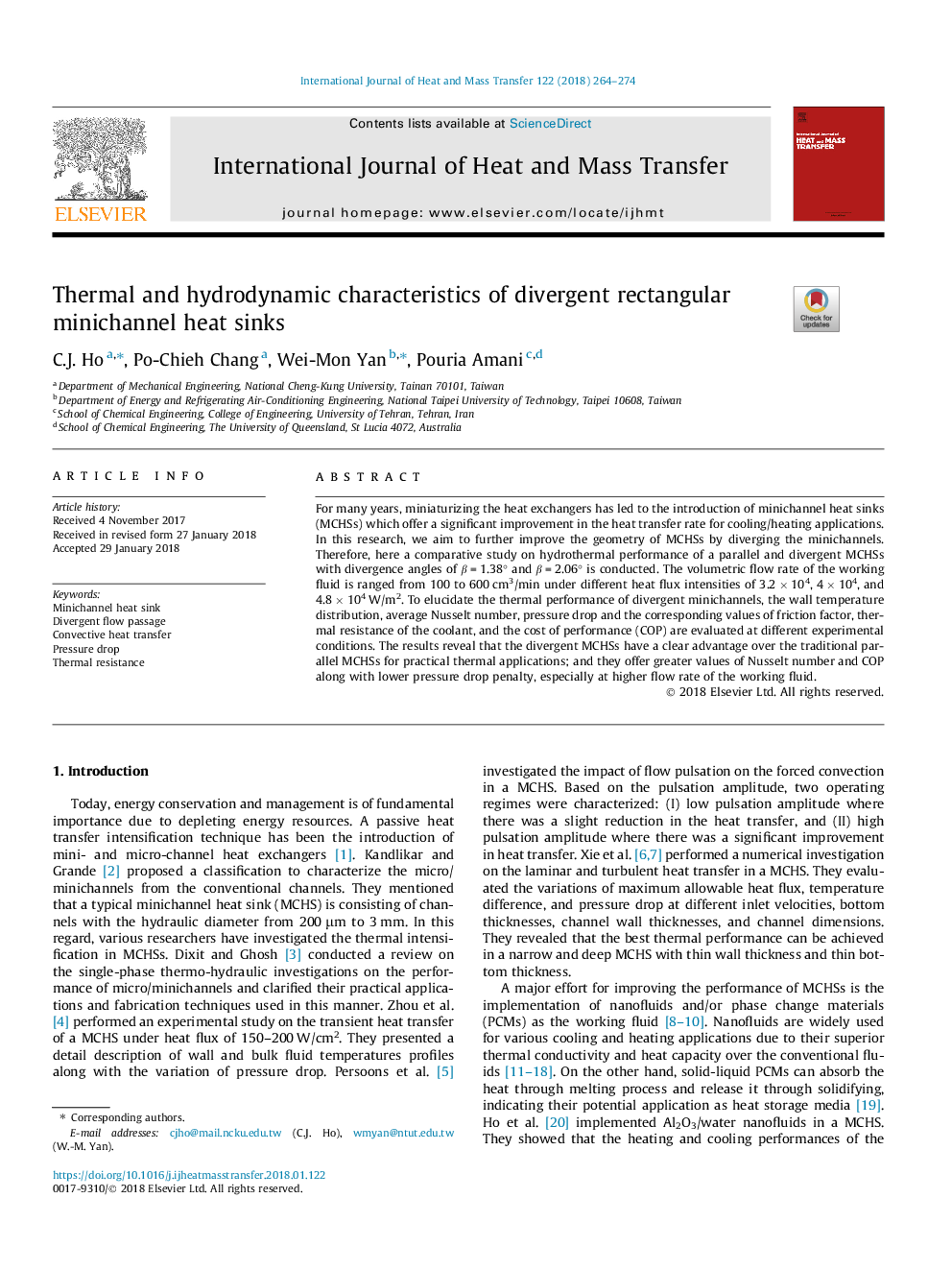| Article ID | Journal | Published Year | Pages | File Type |
|---|---|---|---|---|
| 7054359 | International Journal of Heat and Mass Transfer | 2018 | 11 Pages |
Abstract
For many years, miniaturizing the heat exchangers has led to the introduction of minichannel heat sinks (MCHSs) which offer a significant improvement in the heat transfer rate for cooling/heating applications. In this research, we aim to further improve the geometry of MCHSs by diverging the minichannels. Therefore, here a comparative study on hydrothermal performance of a parallel and divergent MCHSs with divergence angles of βâ¯=â¯1.38° and βâ¯=â¯2.06° is conducted. The volumetric flow rate of the working fluid is ranged from 100 to 600â¯cm3/min under different heat flux intensities of 3.2â¯Ãâ¯104, 4â¯Ãâ¯104, and 4.8â¯Ãâ¯104â¯W/m2. To elucidate the thermal performance of divergent minichannels, the wall temperature distribution, average Nusselt number, pressure drop and the corresponding values of friction factor, thermal resistance of the coolant, and the cost of performance (COP) are evaluated at different experimental conditions. The results reveal that the divergent MCHSs have a clear advantage over the traditional parallel MCHSs for practical thermal applications; and they offer greater values of Nusselt number and COP along with lower pressure drop penalty, especially at higher flow rate of the working fluid.
Related Topics
Physical Sciences and Engineering
Chemical Engineering
Fluid Flow and Transfer Processes
Authors
C.J. Ho, Po-Chieh Chang, Wei-Mon Yan, Pouria Amani,
